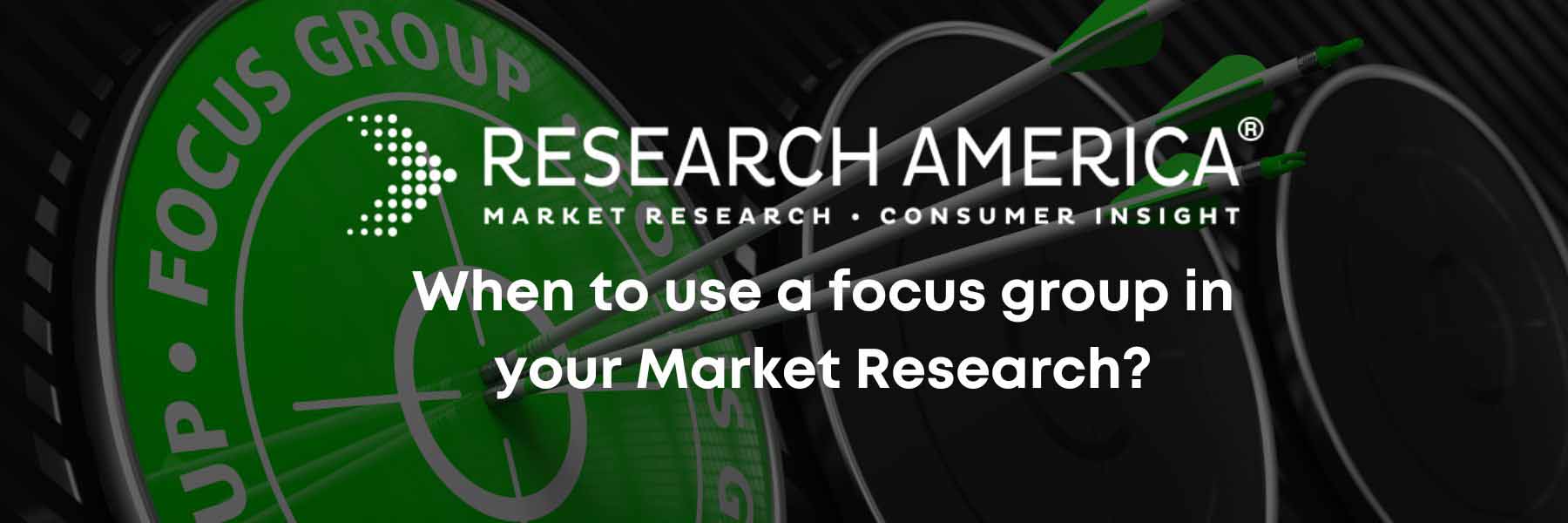When to use a focus group in your Market Research?
What is a focus group?
A focus group is a small meeting of people in an interactive setting. Normally a room or an online video conference, where they talk over a specific subject under the direction of a trained moderator. It takes place in a neutral location–in comparison to a company's own offices. For example—so customers can feel comfortable saying what they figure out about the products or services discussed. Online focus groups eliminate the requirement for a physical location. Like in the flesh groups, online groups cover 6-10 contributors who share their opinions. Many researchers prefer online focus groups for comfort and worthwhileness.
A survey is a public opinion poll that is sent or presented to a large number of people. Whose responses represent the point of view and panoramas of an even larger group.
Surveys tend to be categorized as quantitative research, which provides beyond doubt answers in the form of organized data: Statistics, trends etc. But surveys are substantial in that they can also cover qualitative questions.
When to use a focus group
Now you can acknowledge the definition of focus group and a survey; you may compare both. See the advantages and disadvantages each research approach has about your specific needs.
The first proposal is to write down the questions whose answers you're trying to find out.
-
Are you going to be satisfied with the answers from a directional questionnaire? OR do you believe you may need to go into a deeper conversation with look-into questions and longer descriptions?
-
Are you looking for one-way information (what baffling requirements your clients may have, for example). For statistical proof (how many of your current clients bought your new product)?
-
Will you feel cozy making decisions based on a bother of opinions? Do you need client feedback from a larger sample size before going forward?
As a rule of thumb, if you wish to have a chat with your clients that will assist provide direction, go after a focus group. Whether you have clear-cut questions and need to reach a large group or multiple groups of clients. A survey may best outfit your demands.
The combination of the two methodologies can also provide colossal perception since they can be used for goals like A/B testing or product development research. Cooperatively, the focus group can deliver inspiration while, on the other hand, the survey may offer authentic validation.
The advantages and disadvantages of focus groups and surveys
Now focus on the advantages and disadvantages of both focus groups and surveys. So that you can feel positive you're making an open-eyed choice.
Focus Groups – Advantages
-
Get feedback in your client's words and voices, the most personal type of client review you can obtain.
-
Expose ideas and issues that your team may not have examined but are crucial to your client.
-
Enjoy the flexibility of examining issues in a lot of detail during the conversation.
Surveys – Advantages
-
Get feedback immediately. Depending on the number of questionnaires, results can be available within a day.
-
Research may be sketched once and used many times over a more extended period. It also permits touchstone survey results and discloses trends over months and years.
-
Feedback may be more forthright since it's given in a more private, frequently incognito setting.
-
Various types of clients can answer simultaneously while their answers can be divided based on countless variables.
Focus Groups – Disadvantages
-
There's a risk of receiving crooked results when candid contributors dominate the conversation.
-
Enlisting qualified contributors may be difficult due to the time commitment tangled.
-
You have to infuse significant time and attention to arrange and conduct a focus group.
Surveys – Disadvantages
-
Enlisting the right contributors may be difficult if you do not have contact details for your clients.
-
Asking look-into questions needs directing additional research.
-
Clients may not have a way to foresightedly give you feedback on issues not involved in the survey.
Tips on how to direct focus groups:
Now you recognize which research method will outfit your objectives better. Luckily, there are some resemblances in work involved when time comes to get ready to achieve them.
-
Objectives.
All successful research projects begin with clear goals. Certify that the team knows what the main research questions and what decisions you plan to announce with the project's results are. Get input from the primary partners in your corporation and secondary partners to guarantee that you get it right the first time. Remodels are costly in time and money.
-
Enlist contributors.
Whose school of thought do you need to catch in this research project? Merely as important, who do you want to shut out? Think about this question with regard to social class. To ensure that your inquirers represent the right earmark public, and regarding whether they are current or potential clients.
-
Grow the content.
If you've marked it, go with a focus group. You have to work on a conversation guide: Lines for the prolocutor to use in the groups. What questions do they have to ask? what do they have to know about your product or service to respond to any questions from contributors? Research America experts can assist.
Focus groups and surveys can assist marketers, product managers, and designers apply this method. Which is part of the emerging discipline of easy-to-use design.
Ready To Learn More ?
If you require a focus group to meet your specific needs, contact Research America. For further details contact us

